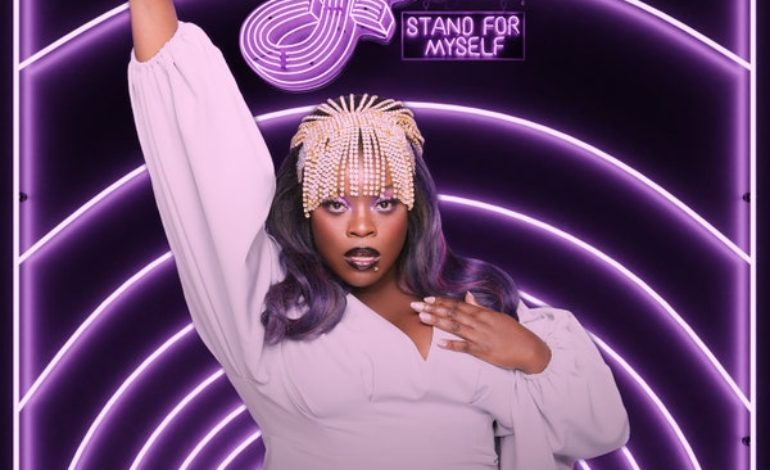

Yola defies traditionalism with new genre-distorting project
Yola has always been doing things differently. As a woman of color in a community largely saturated by men, Yola is able to consistently break walls not only personally but through her wide range of genres as well. Never one to conform, she recently joined the likes of Brandi Carlile, Natalie Hemby, Amanda Shires and Maren Morris to create an all-female version of the classic Outlaw country song, “The Highwaymen.” Taking the perspective of a freedom rider shot down in the deep south in her verse, Yola brings parts of her life and history into her own version of modern music. In her newest album, Stand For Myself, Yola takes different parts of herself and mashes them into an album never confined by the constraints of genre. Working with The Black Keys frontman Dan Auerbach for the majority of the production, all different styles and sounds were taken into account. Stand For Myself represents the pinnacle of what artists can do with genre crossover.
The first track on the album, “Barely Alive,” brings alive the sound of Motown. With a slowed groove carried along by chirping guitar chords, Yola’s deep, soulful voice caters to the relaxed feel of the song. Auerbach’s production stares into the camera on this track as it combines sound after sound after sound yet never overreaches or gets in the way of Yola’s voice. A more upbeat track but still reaching back to the ’70s to find that soulful funk-pop, Yola delivers “Dancing Away In Tears.” It’s a song that should’ve been cut by the likes of Smokey Robinson or Marvin Gaye in the heyday of the Motown Sound. Harmonies and a Gretsch drumset (the typical one used in the ’70s sound) complete the overall sound of the track. “Were dancing away in tears,” croons Yola also in the lyrical fashion of the soul artists that came before her. The next song on the project, “Diamond Studded Shoes,” is the lead single off of the album. Again playing with the boundaries of country music, she chooses a different boundary to hop around this time. More reminiscent of the James Taylor style of a country-pop crossover, electric and slide guitars will get anyone’s “diamond studded shoes” dancing.
Recently, there has been a rise in choppy, chord-driven songs such as Ed Sheeran’s “Thinking Out Loud” or Thomas Rhett’s “Die A Happy Man.” Yola takes her stab at it in “Great Divide.” Differentiating herself and her song from these other hits, her vibrato and soulful voice offer a different sort of peace than the others. Continuing along this vein, another beautiful, slowed track comes in “Starlight.” “Starlight” represents the most streamed song on the project except for its lead single and the title track. Again, Yola makes people like Otis Redding stay still in their graves, offering an incredible spotlight into a way that 1970s soul music can make its way into the ears of modern listeners in an impactful way. “Now You’re Here” is a calming presence. Coming complete with chimes and smooth guitars, this track would fill every bar in 20th century Detroit. Even the lyrics offer solace in themselves while Yola sings, “the bad times, the sad times you make them feel so long ago.” From here, Yola completely changes direction with her song, “Whatever You Want.” The track begins with a rock guitar and “well, I knew it wasn’t love, but I was told it would be enough.” Going from an airy, ethereal cocktail bar love song to a rocking, grooving dive bar breakup song is a heavy task for many artists—not Yola.
“Break The Bough” is pure fun in the most James Brown way. Sure to have feet shuffling across the floor, shortened guitar riffs and a constant snare drum gives the song its groove until it opens up to more instruments. With every new sound that comes in, Yola gains more energy and confidence. Impassioned yells and vibratos mark every bar, creating the passion that this production demands. One last time on the album, Yola plays with the boundaries of genre in the title track, “Stand For Myself.” Instead of pop or soul or funk, Yola takes a walk down the path of southern rock. Wailing harmonicas, rock drums and electric guitars reminiscent of early Sturgill Simpson mark this track. An upbeat, badass message of resilience through loss, the instruments, lyrics and feel of this track made it a standout.
Stand For Myself works because the music is good. But also, it is important to take a look at the circumstances surrounding the creative part of this project. Yola took her brand of soul-country and brought it to one of the most intriguing alternative producers that the music industry offers. There was never any attempt to conform or stay between the lines. In this sentiment, Yola delivered a wonderfully colorful album in a situation that is so often in black and white.
